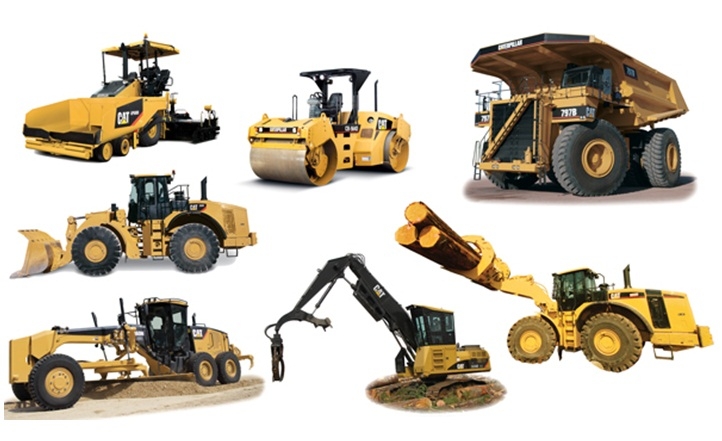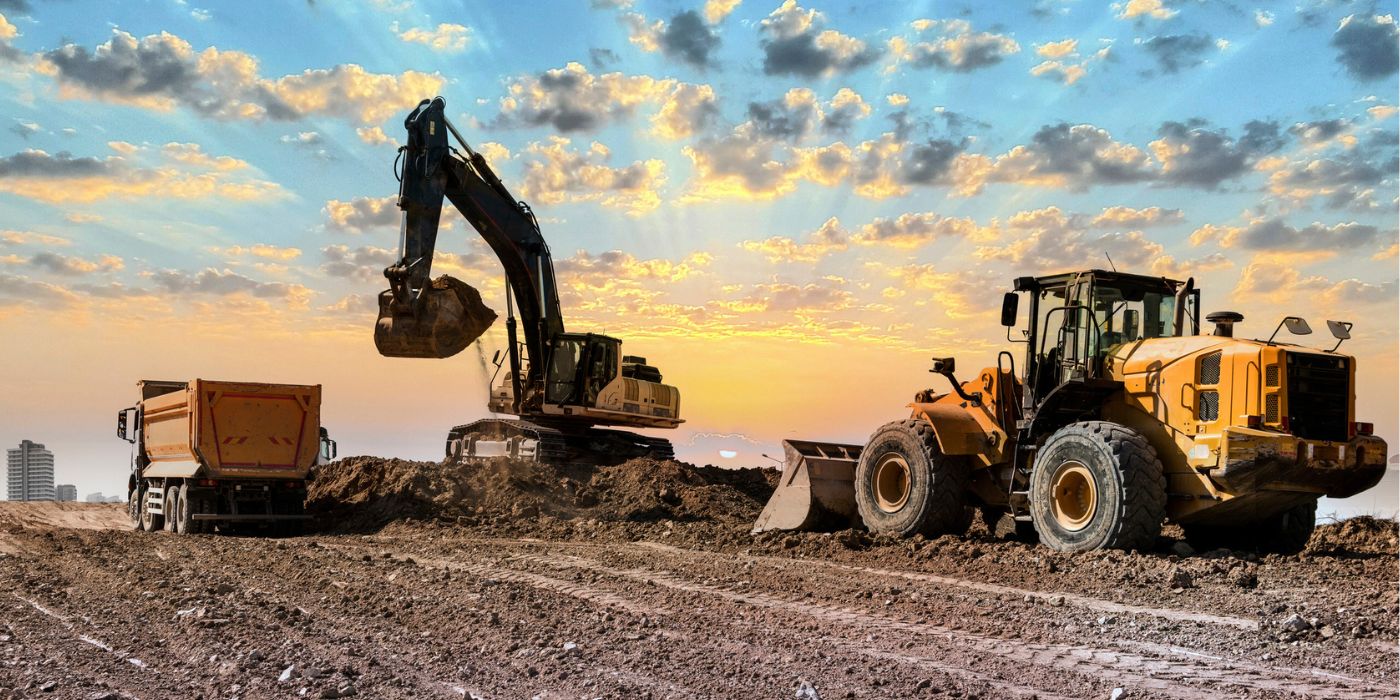Heavy Equipment Rental in Tuscaloosa, AL: Discover the Right Tools for Any Kind Of Job
Heavy Equipment Rental in Tuscaloosa, AL: Discover the Right Tools for Any Kind Of Job
Blog Article
Checking Out the Financial Perks of Leasing Building And Construction Tools Compared to Having It Long-Term
The decision between renting and having construction equipment is essential for economic management in the sector. Leasing deals immediate expense financial savings and functional versatility, allowing firms to allot sources a lot more efficiently. Comprehending these nuances is essential, especially when considering how they straighten with specific task requirements and economic strategies.

Expense Comparison: Renting Vs. Owning
When examining the financial implications of owning versus renting out building devices, a comprehensive cost comparison is important for making notified decisions. The choice between owning and renting out can dramatically impact a firm's bottom line, and comprehending the linked prices is critical.
Renting out construction tools generally involves lower upfront prices, enabling businesses to allocate capital to other operational needs. Rental agreements often include versatile terms, making it possible for firms to access progressed machinery without long-lasting commitments. This flexibility can be specifically beneficial for temporary tasks or rising and fall work. However, rental prices can gather in time, potentially surpassing the expenditure of ownership if tools is needed for an extensive period.
Conversely, having construction devices needs a considerable first investment, in addition to recurring prices such as depreciation, funding, and insurance. While ownership can bring about lasting cost savings, it likewise links up funding and might not give the same level of adaptability as leasing. Furthermore, owning equipment requires a commitment to its use, which may not constantly straighten with project needs.
Ultimately, the decision to rent or possess should be based on a thorough analysis of details task demands, financial capacity, and lasting strategic goals.

Upkeep Responsibilities and expenses
The selection in between having and renting out building tools not only entails financial factors to consider however additionally incorporates continuous upkeep expenditures and responsibilities. Possessing equipment requires a significant dedication to its upkeep, that includes routine assessments, repairs, and potential upgrades. These duties can rapidly accumulate, resulting in unanticipated costs that can stress a spending plan.
On the other hand, when renting out tools, upkeep is generally the duty of the rental firm. This setup enables specialists to stay clear of the monetary burden associated with deterioration, as well as the logistical obstacles of scheduling repairs. Rental agreements frequently include provisions for maintenance, implying that professionals can concentrate on completing projects rather than bothering with devices condition.
Additionally, the varied array of equipment available for rent enables business to select the latest versions with innovative technology, which can enhance performance and performance - scissor lift rental in Tuscaloosa, AL. By selecting leasings, companies can stay clear of the long-term obligation of devices devaluation and the linked upkeep headaches. Eventually, examining upkeep expenditures and obligations is crucial for making an educated choice regarding whether to rent or possess building equipment, substantially affecting total job expenses and functional efficiency

Devaluation Influence on Ownership

A considerable element to take into consideration in the decision to possess building and construction tools is the effect of devaluation on general possession costs. Depreciation stands for the decline in worth of the tools over time, affected by variables such as use, damage, and improvements in modern technology. As tools ages, its market worth reduces, which can dramatically affect the owner's economic setting when it comes time to market or trade the devices.
For building and construction firms, this depreciation can translate to significant losses if the devices is not made use of to its greatest capacity or if it lapses. Proprietors need to account for depreciation in their financial estimates, which can bring about greater total prices compared to renting. In addition, the tax obligation implications of depreciation can be complex; while it may provide some tax advantages, these are commonly offset by the truth of decreased resale worth.
Eventually, the concern of devaluation emphasizes the importance of comprehending the long-lasting economic dedication associated with having construction devices. Firms have to thoroughly examine how often they will use the devices and the prospective financial impact of depreciation to make an educated decision concerning possession versus leasing.
Financial Flexibility of Renting Out
Leasing construction devices supplies significant economic adaptability, enabling companies to allocate resources a lot more effectively. This versatility is especially vital in a market characterized by fluctuating task demands and differing workloads. By deciding to rent, businesses can avoid the significant funding outlay needed for acquiring equipment, preserving capital for her explanation other operational needs.
Additionally, renting devices enables companies to customize their equipment choices to details job needs without the long-lasting dedication related to possession. This indicates that organizations can easily scale their tools inventory up or down based on awaited and present project needs. Consequently, this flexibility reduces the danger of over-investment in equipment that might become underutilized or outdated gradually.
Another economic benefit of leasing is the capacity for tax obligation benefits. Rental settlements are frequently taken into consideration business expenses, enabling for prompt tax reductions, unlike depreciation on owned and operated equipment, which is topped a number of years. scissor lift rental in Tuscaloosa, AL. This prompt expenditure acknowledgment can additionally boost a company's money placement
Long-Term Job Considerations
When examining the long-lasting needs of a building and construction business, the decision in between possessing and leasing tools ends up being much more complex. For projects with extended timelines, purchasing devices may seem advantageous due to the potential for lower overall expenses.
Additionally, technical advancements position a significant consideration. The building sector is developing quickly, with new devices offering improved efficiency and security weblink functions. Renting out allows business to access the most recent innovation without committing to the high ahead of time costs connected with purchasing. This versatility is particularly useful for organizations that handle diverse tasks requiring various kinds of tools.
Additionally, economic security plays an important role. Possessing devices typically involves significant capital expense and devaluation issues, while renting enables for even more predictable budgeting and capital. Ultimately, the selection between having and renting ought to be aligned with the critical purposes of the construction business, considering both awaited and present job demands.
Final Thought
To conclude, renting out construction devices uses considerable financial advantages over long-lasting ownership. The lessened in advance costs, elimination of upkeep responsibilities, and avoidance of depreciation add to enhanced cash money flow and financial flexibility. scissor lift rental in Tuscaloosa, AL. Furthermore, rental payments work as prompt tax reductions, additionally profiting service providers. Ultimately, the decision to rent out heavy duty crane rental as opposed to own aligns with the vibrant nature of building tasks, permitting flexibility and accessibility to the current equipment without the monetary worries related to ownership.
As devices ages, its market worth diminishes, which can considerably affect the proprietor's monetary placement when it comes time to sell or trade the tools.
Renting out building and construction devices uses significant monetary versatility, enabling firms to designate resources much more effectively.In addition, renting out tools allows business to customize their tools selections to certain job demands without the long-term dedication associated with possession.In verdict, leasing construction devices supplies considerable economic advantages over long-term ownership. Eventually, the decision to lease rather than very own aligns with the dynamic nature of construction tasks, enabling for flexibility and access to the most current tools without the financial problems linked with ownership.
Report this page